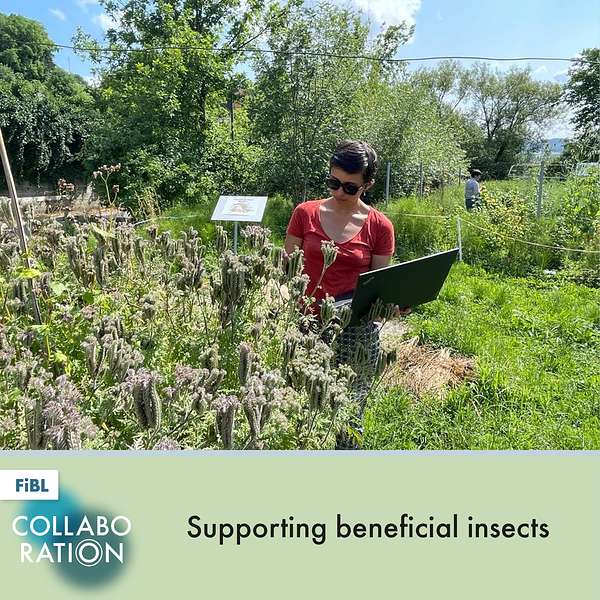
FiBL Collaboration
"FiBL Collaboration" is a multilingual podcast channel produced by the Research Institute of Organic Agriculture FiBL. In the podcast, we talk with experts from around the globe about the latest scientific findings from national and international research projects. We are happy to receive feedback or topic proposals via podcast@fibl.org. Homepage: https://www.fibl.org/en/infothek/podcast-en; Imprint: https://www.fibl.org/en/contact-site-information, © 2021 FiBL
FiBL Collaboration
Supporting beneficial insects
Insect decline is a global issue that affects both agricultural and urban areas, posing detrimental consequences for the environment and, therefore, for humanity as a whole. FiBL is testing whether flowering plants can be used to increase the abundance and diversity of beneficial insects in agricultural and urban settings.
Habitat loss and the widespread use of pesticides in conventional farming contribute to the global decline of insect abundance and diversity. This decline affects not only harmful insects but also beneficial ones, including pollinators and natural enemies that control agricultural pests. As a result, there are negative impacts on ecosystem services and farmers' income. FiBL is developing solutions to reverse this trend.
Do flowering plants have the potential to promote beneficial insects in agricultural fields and home gardens? Absolutely! Flowering plants provide habitat and food sources to beneficial insects, making them an effective tool for indirect insect pest management. By incorporating flowering plants into agricultural landscapes and home gardens, reliance on pesticides and other direct control strategies can be reduced. In this episode, Paola Cassiano presents two research projects that test the impact of flowering plants in sustaining beneficial insects.
Paola is currently working as an intern in the FiBL group of Entomology and Agroecology as part of her MSc program at Wageningen University. In the past five years, she has been working as a freelancer specialised in sustainable agriculture and science communication. She also co-created an Italian podcast about agricultural sciences, called agRicerca.
The podcast team is happy to receive your feedback and suggestions via podcast(at)fibl.org.
Guest: Paola Cassiano (FiBL Switzerland)
Moderation and editorial work: Sophie Thanner (FiBL Switzerland)
Further information:
- Project: Alternative methods of regulation of the Colorado potato beetle
- Project: Development of a range of organic vegetables and ornamentals with heirloom varieties
- Italian podcast about agricultural sciences: agRicerca